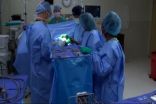INFORMATION:
To learn more about men's health issues and follow the doctors on their journey, log on to driveformenshealth.com.
About South Lake Hospital:
South Lake Hospital, in affiliation with Orlando Health, is a non-profit, 170-bed hospital in Clermont, Fla. The hospital's 180-acre health, education and wellness campus includes the inpatient hospital, The PUR Clinic - Personalized Urology Robotics, Centre for Women's Health, SkyTop View Rehabilitation Center, LiveWell Fitness Center, National Training Center, South Lake Endoscopy Center, South Lake Surgery Center, South Lake Home Health and South Lake Wound Care Center. South Lake Hospital has been serving the healthcare needs of the south Lake County community since 1947 and employs 1,350 team members and has over 250 physicians on its medical staff. For more information please visit SouthLakeHospital.com. END
New survey: Only about half of men can remember their last medical check-up
Results show that more men need to make their health a priority
2015-06-08
(Press-News.org) Clermont, Florida. (June 8, 2015) - A new national survey about men and their cars, commissioned by Orlando Health, found that more than 80 percent of men could remember the make and model of their first car, but only about half could remember the last time they went to the doctor for a check-up.
The survey of approximately 1,000 men is being released in conjunction with the start of the Drive For Men's Health, a cross-country event where two of the top men's health surgeons in the US will travel 6,008 miles to promote awareness on various men's health topics. It was conducted by Harris Interactive online within the United States from May 20-22, 2015 among 927 adult men ages 18 and older. 795 men (81%) could remember the make and model of their first car, 532 (54%) could remember the last time they went to the doctor for a check-up.
"Men need to take better care of themselves, period," said Dr. Sijo Parekattil, co-founder of the the Drive for Men's Health and co-director of the PUR (Personalized Urology & Robotics) Clinic at South Lake Hospital, in affiliation with Orlando Health. "It's a message we want to get to as many men as possible, and we're willing to drive cross country to do it."
Dr. Jamin Brahmbhatt, the other co-founder of the Drive for Men's Health and co-director of the PUR Clinic, points out that men in general live sicker throughout their lives and die younger than women. In 1920, women outlived men by only one year. Today, men die five years earlier. The Center for Disease Control and Prevention found that women are 100 percent more likely to visit their doctor for an annual check up than men.
"Your body's essentially like a car," said Dr. Brahmbhatt. "You need to get checks done per recommendation, per guidelines every one year, five years, ten years, whatever the guidelines are. But the only difference between a car and your body is you only have one body."
ELSE PRESS RELEASES FROM THIS DATE:
New study describes cancer's cheating ways
2015-06-08
Cancer cells share certain traits with anti-social members of human society. They shirk community responsibilities and engage in behavior aimed at fulfilling their selfish needs at the expense of the greater good.
In a new study, Athena Aktipis, a researcher at Arizona State University's Biodesign Institute, along with her international colleagues, explore the ways in which cancers bypass the protective mechanisms used by multicellular forms to ensure their survival and wellbeing.
The paper identifies five foundations of multicellularity; maintenance factors present ...
Leaky pipes can allow contaminants into our drinking water
2015-06-08
The study, by engineers at the University of Sheffield, is the first to prove conclusively that contaminants can enter pipes through leaks and be transported through the pipe network.
The pressure in mains water pipes usually forces water out through leaks, preventing anything else from getting in. But when there is a significant pressure drop in a damaged section of pipe, water surrounding the pipe can be sucked in through the hole.
It had been assumed that only clean water from the leak would be sucked in, and that even if contaminants were sucked in these would ...
People want access to their own genomic data, even when uninterpretable
2015-06-08
Glasgow, United Kingdom: The largest study to date of attitudes towards the use of genomic information shows that the majority of people want access to results from genome sequencing, even if these are not directly related to the condition for which the analysis has been undertaken. This applies even when the data are not health-related or are simply 'raw', a researcher will tell the annual conference of the European Society of Human Genetics today (Monday).
Dr Anna Middleton, a Principal Staff Scientist at the Wellcome Trust Sanger Institute, Cambridge, UK, will describe ...
Current mobile contracts damaging the environment, research finds
2015-06-08
Research published today in the journal the International Journal of Life Cycle Assessment has called for an overhaul of the way mobile devices are manufactured and contracted, in order to stop the harmful effects on the environment caused by current business models.
Researchers from the University of Surrey analysed studies on the lifespan of mobile devices, from manufacture, use and disposal to see what impact each stage had on the environment. Through their investigation, they concluded that the current mobile business model, driven by frequent upgrades, is costing ...
Massachusetts General Hospital launches phase II trial of BCG vaccine to reverse type 1 diabetes
2015-06-07
A phase II clinical trial testing the ability of the generic vaccine bacillus Calmette-Guérin (BCG) to reverse advanced type 1 diabetes has received approval from the U.S. Food and Drug Administration (FDA). The approval of this trial, which will shortly begin enrolling qualified patients, was announced today at the 75th Scientific Sessions of the American Diabetes Association (ADA) by Denise Faustman, MD, PhD, director of the Massachusetts General Hospital (MGH) Immunobiology Laboratory and principal investigator of the study.
The five-year trial will investigate ...
50 years of diabetes research and treatment
2015-06-06
BOSTON (June 6, 2015) - From how people test their glucose levels to how long they can expect to live, almost everything has changed over the past 50 years for Americans with diabetes. A special symposium held at the American Diabetes Association's 75th Scientific Sessions features a look back at what physicians and researchers have learned and how the lives of patients have changed during the past five decades.
"There are things that have happened over the past 50 years that clearly make life a lot better for people," said Fred Whitehouse, MD, Division Head Emeritus ...
Novel genetic mutations may arise during early embryonic development
2015-06-06
Until now, de novo genetic mutations, alterations in a gene found for the first time in one family member, were believed to be mainly the result of new mutations in the sperm or eggs (germline) of one of the parents and passed on to their child.
Researchers from The Netherlands have now succeeded in determining that at least 6.5% of de novo mutations occur during the development of the child (post-zygotic) rather than from the germline of a parent. The research is published today in the American Journal of Human Genetics*.
Christian Gilissen, PhD, Assistant Professor ...
Discovery of new genetic mutation in aortic disease allows better diagnosis
2015-06-06
Glasgow, United Kingdom: Thoracic aortic aneurysm and dissection (TAAD), an enlargement or tearing of the walls of the aorta in the chest, is, together with abdominal aortic aneurysms, responsible for about 2% of all deaths in Western countries. The aorta is the largest artery in the body, and carries blood from the heart. About one out of every five patients with TAAD has a family member with the same disorder, therefore indicating a genetic cause. However, the relevant genetic mutations discovered so far only explain about 30% of all cases. Through the study of a large ...
Noninvasive prenatal testing: Effective, safe, preferred by parents
2015-06-06
Glasgow, United Kingdom: Non-invasive prenatal testing (NIPT) for Down's syndrome is feasible, acceptable to parents, and could be introduced into the National Health Service (NHS), UK researchers say. The results of a National Institute for Health Research (NIHR) study carried out by the first NHS laboratory to provide NIPT testing will be reported to the annual conference of the European Society of Human Genetics today (Saturday).
Presenting her team's findings, Professor Lyn Chitty, from the UCL Institute of Child Health and Great Ormond Street Hospital, London, UK, ...
First national study of noninvasive prenatal testing shows it works
2015-06-06
Glasgow, United Kingdom: Results from a national study of non-invasive prenatal testing (NIPT) in women at high risk of having a baby with Down's syndrome will be presented at the annual conference of the European Society of Human Genetics today (Saturday). The Netherlands is the first country in the world to include NIPT in a government supported, healthcare-funded trisomy syndrome screening programme. In many other countries, such screening is offered by commercial companies and without governmental guidance, so studying the accuracy of the programme and its acceptability ...
LAST 30 PRESS RELEASES:
New knowledge on heritability paves the way for better treatment of people with chronic inflammatory bowel disease
Under the Lens: Microbiologists Nicola Holden and Gil Domingue weigh in on the raw milk debate
Science reveals why you can’t resist a snack – even when you’re full
Kidney cancer study finds belzutifan plus pembrolizumab post-surgery helps patients at high risk for relapse stay cancer-free longer
Alkali cation effects in electrochemical carbon dioxide reduction
Test platforms for charging wireless cars now fit on a bench
$3 million NIH grant funds national study of Medicare Advantage’s benefit expansion into social supports
Amplified Sciences achieves CAP accreditation for cutting-edge diagnostic lab
Fred Hutch announces 12 recipients of the annual Harold M. Weintraub Graduate Student Award
Native forest litter helps rebuild soil life in post-mining landscapes
Mountain soils in arid regions may emit more greenhouse gas as climate shifts, new study finds
Pairing biochar with other soil amendments could unlock stronger gains in soil health
Why do we get a skip in our step when we’re happy? Thank dopamine
UC Irvine scientists uncover cellular mechanism behind muscle repair
Platform to map living brain noninvasively takes next big step
Stress-testing the Cascadia Subduction Zone reveals variability that could impact how earthquakes spread
We may be underestimating the true carbon cost of northern wildfires
Blood test predicts which bladder cancer patients may safely skip surgery
Kennesaw State's Vijay Anand honored as National Academy of Inventors Senior Member
Recovery from whaling reveals the role of age in Humpback reproduction
Can the canny tick help prevent disease like MS and cancer?
Newcomer children show lower rates of emergency department use for non‑urgent conditions, study finds
Cognitive and neuropsychiatric function in former American football players
From trash to climate tech: rubber gloves find new life as carbon capturers materials
A step towards needed treatments for hantaviruses in new molecular map
Boys are more motivated, while girls are more compassionate?
Study identifies opposing roles for IL6 and IL6R in long-term mortality
AI accurately spots medical disorder from privacy-conscious hand images
Transient Pauli blocking for broadband ultrafast optical switching
Political polarization can spur CO2 emissions, stymie climate action
[Press-News.org] New survey: Only about half of men can remember their last medical check-upResults show that more men need to make their health a priority


